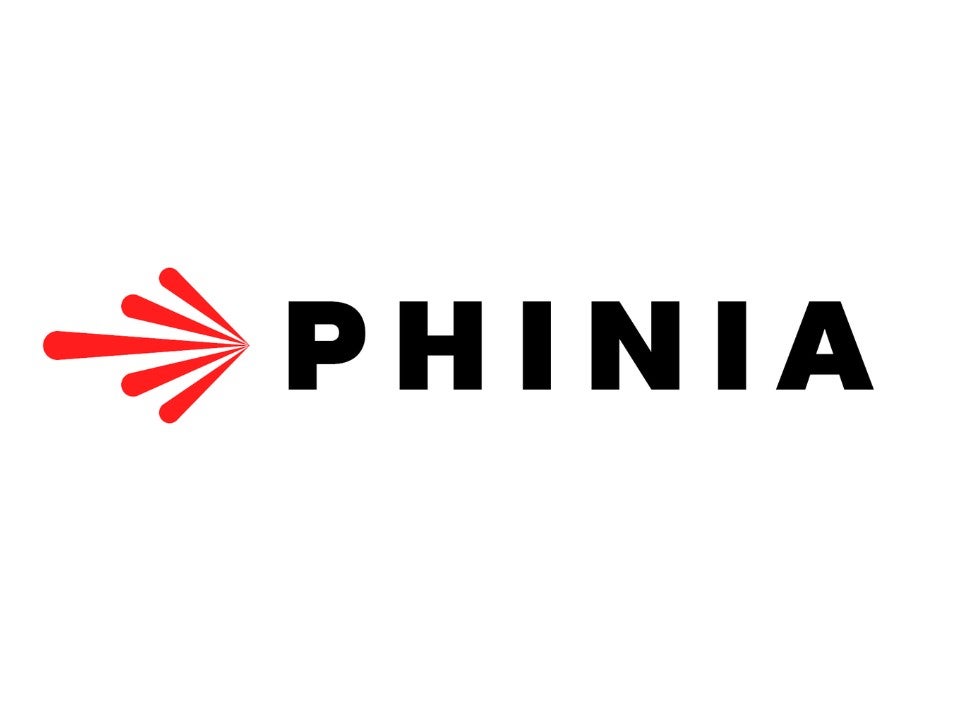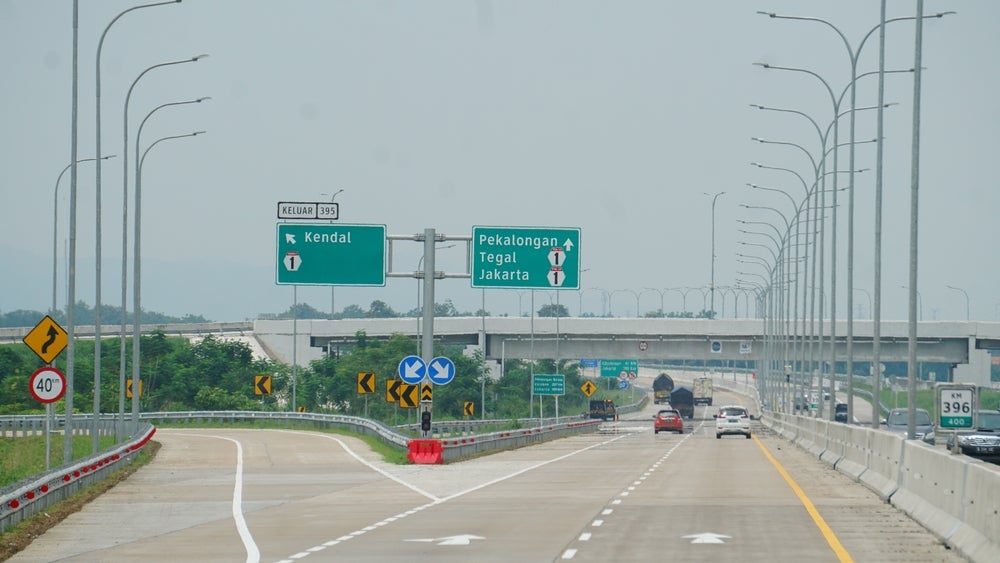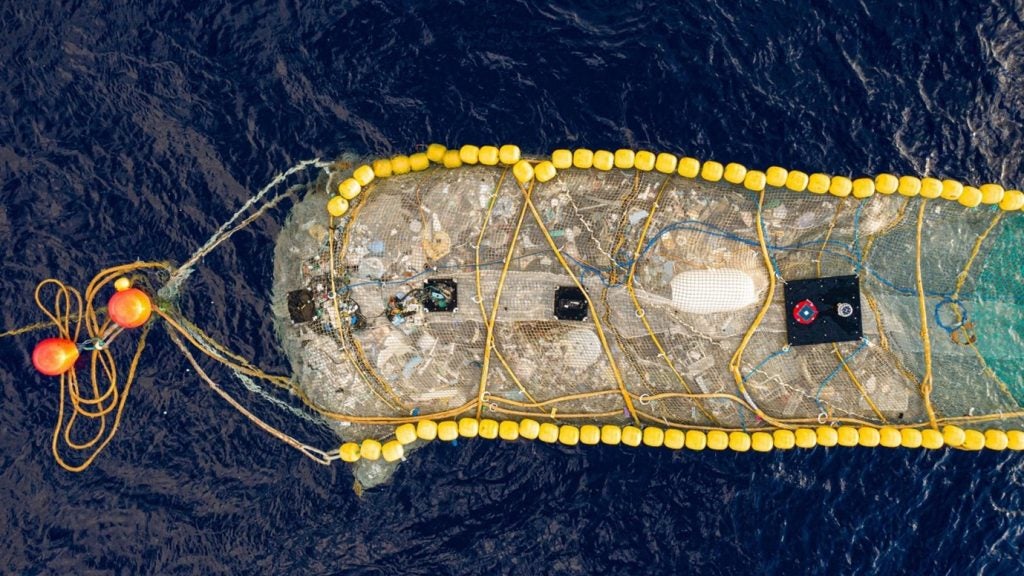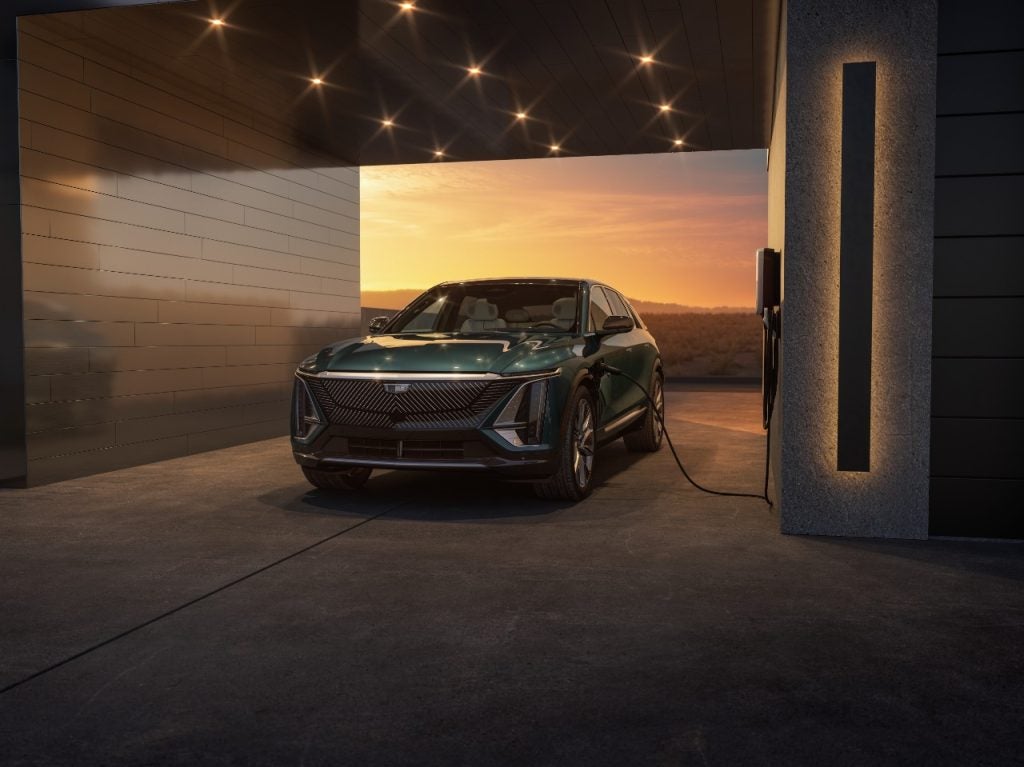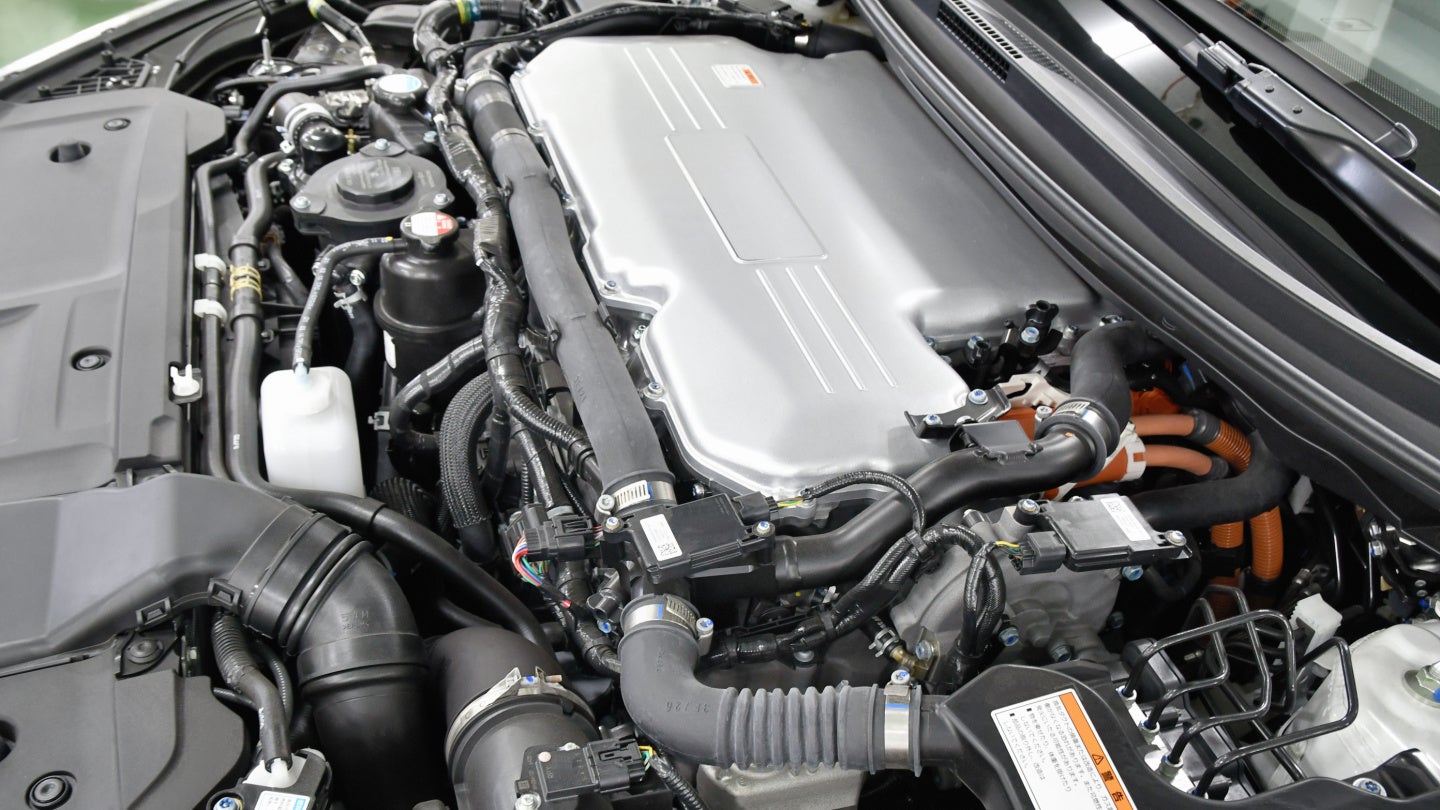
As the BEV sector faces headwinds, should the passenger car sector revisit fuel cells?
A clean and energy-dense power source makes fuel cell vehicles sound like a dream. So, why have they not gained popularity in the real world? Asked we this week. Fuel cells are one of several high-profile technologies available for passenger vehicle decarbonisation. When applied to the field of personal mobility, a proton exchange membrane fuel cell (PEMFC) is implied. PEMFC is favourable in auto applications because it has a low operating temperature and a high energy density. The typical PEMFC in use today contains four key components including a proton conducting membrane, gas diffusion layer, cathode, and anode with embedded platinum-based catalyst. In brief, the hydrogen feedstock reacts with oxygen from the air to generate electricity. The only reaction product is water which is produced on the cathode side and exhausted from the system. In an automotive application, FCEVs take only around three minutes to refuel which is particularly important for commercial vehicles like taxis and buses. Moreover, hydrogen is a high energy carrier when compared with even state-of-the-art lithium solid-state batteries (33.4 kWh/kg vs 0.4 kWh/kg). In other words, a fuel cell vehicle can travel much further without refuelling, which gives it an advantage in long-haul vehicles. The energy contained in hydrogen does not diminish over time and distance travelled. FCEV can be a zero-emission solution that is used where BEV is not a feasible option, for instance, in areas without electric grid coverage. A clean and energy-dense power source makes fuel cell vehicles sound like a dream. So, why have they not gained popularity in the real world?
Future models is back!
After a hiatus, our popular future models series returned this week. Is Germany’s mightiest OEM, the VW Group, developing the right models to win against fearsome rivals in major car buying regions? This first (of two) reports looked at the VW and Audi brands.
Global sales
The Global Light Vehicle (LV) selling rate rose for the fifth consecutive month in July, according to figures released by GlobalData, reaching 95 million units/year from a revised figure of 94 million units/year in June. Despite continued year-on-year (YoY) growth, global LV sales for July recorded a moderate 5.5% YoY increase following a run of stronger growth over previous months. While the USA, Western and Eastern Europe all registered double digit YoY growth in July, China and Korea both experienced YoY declines. For both countries, the decline in performance was largely due to comparatively strong levels in 2022, as well as the expected additional excise duty finally being implemented in Korea. With reduced consumer spending in China, several automotive firms have slashed prices to help stimulate demand in the region.
Fast charging
K-based battery technology company Nyobolt showcased its latest EV concept vehicle at this years’ Goodwood Festival of Speed. It claims the car’s battery charges fully in under six minutes, setting a record. Weighing closer to one tonne than two, the concept vehicle is powered by a smaller, lighter battery than other EV models on the market. It is claimed the model not only boasts an impressive charge time but also provides greater efficiency and lower running costs, lower up-front costs, and a reduced use of raw materials. According to the company, this new battery technology design will dramatically increase the accessibility of EVs for UK households who are struggling to charge EVs overnight. The company has worked in collaboration with automotive design and engineering business, CALLUM, who have helped developed and executed the final design. Frankie Youd spoke to Sai Shivareddy, CEO, Nyobolt, to discuss the concept model and highlight some of its features.
Chinese big in Brazil
Chinese automakers have set their sights on producing electrified vehicles in Brazil, so the race with established players has begun. Despite stuttering production and the threat of weakening demand faced by automakers in Brazil, Chinese automakers are making strides in establishing localized production of their offerings in the region. With the announcements of Great Wall Motor (GWM) and BYD Auto’s planned arrivals, the race is on to see which group can bring localized production of electrified Light Vehicles (LVs) before other players. Although production of electrified models has gradually been on the rise globally, the region is just beginning to open to the production of these models, with Brazil at the forefront. The optimistic goals from GWM and BYD have shaken up the region as the groups fight to establish production in the region sooner than the other, also pushing long-standing automakers to make moves of their own. Using the strategy of acquiring previously owned plants, GWM and BYD have a lot of optimism in offering all-electric and hybrid vehicles to compete with the likes of Toyota’s Corolla and Corolla Cross. These Toyota models have historically made up most of the localized production of hybrid offerings in the country, until Chery introduced its mild hybrid versions of the Tiggo 5x and Tiggo 7 lines in 2022.
Evergrande in the do-do
Financially troubled China Evergrande Group has filed for bankruptcy in the US as it undergoes restructuring. The group has been hard hit by reversals in the property sector in China and enduring much higher levels of debt. According to Nikkei, Evergrande has filed for Chapter 15 protection in New York, which is meant for insolvency cases involving non-US companies. The Nikkei report noted that Evergrande, China’s second-largest property developer, defaulted on its debt in 2021, triggering a property crisis that remains a drag on China’s economy. The company lost $81 billion in 2021 and 2022, Nikkei said. The Evergrande group’s EV arm, New Energy Vehicle Group, recently unveiled a restructuring proposal that gives a Dubai automaker, NWTN, a 27.5% stake.
Stellantis invests in battery materials
Stellantis has invested US$100m in Controlled Thermal Resources (CTR) to advance CTR’s Hell’s Kitchen project. The companies have also expanded their supply deal for lithium carbonate which would help vehicles’ BEV eligibility for consumer incentives under the US Inflation Reduction Act (IRA). Under this revised supply agreement, CTR would provide 65,000 tonnes of battery grade lithium hydroxide monohydrate (LHM) annually for 10 years. This followed the initial lithium supply deal inked in June 2022, originally slated for up to 25,000 tonnes. The first supply is expected in 2027.
EVs and the ship fire
Executives from salvage companies have poured water on speculation an EV started the fire aboard the car carrier Fremantle Highway. The Panama flagged car and truck carrier chartered by K Line was en route to Singapore from Bremerhaven in Germany when it caught fire on 25 July. According to maritime-executive.com, the salvage specialists have questioned speculation that the fire began with one of the electric cars. They noted that a large number of EVs were intact on the lower decks and the speed at which the fire subsided and was put out was inconsistent with EV battery fires.
GM struggles with EV output……
GM CFO Paul Jacobson answered investor questions at the J.P. Morgan Auto Conference earlier this month and admitted that the automaker had faced some “startup challenges” when it came to EV production. Fielding a question about the Hummer EV and Cadillac Lyriq on how it looked like GM was “still attempting to scale both vehicles,” Jacobson said: “We’ve had some startup challenges… in particular with a supplier [and] the technology around module creation – this is taking cells from module to pack – that’s created a bit of a bottleneck in the process.” He went onto reassure attendees: “We’ve identified it [the problem], we’ve attacked it.” In 2022, GM delivered 122 Lyriqs. This July, it delivered over 1,000 Lyriqs, which was below the firm’s expectations. Jacobson said the automaker was trying to drive that volume up.
…finances cathodes
GM has taken the lead in a US$60m Series B financing round for battery materials startup Mitra Chem to develop affordable batteries for electric vehicles (EVs). The startup would develop new batteries using iron-based cathode active materials (CAM), such as lithium manganese iron phosphate (LMFP), which are compatible with GM’s Ultium platform. LFP based cells offer production cost advantages and a reduced reliance on cobalt compared to common nickel cobalt manganese (NCM) batteries. However, due to lower power density, EVs using LFP cells require more of them, resulting in added weight to achieve a similar range as conventional battery models. GM’s investment would speed Mitra Chem’s operational growth and fasttrack the introduction of its battery materials.
Another SK On plant
South Korean electric vehicle (EV) battery manufacturer SK On plans to invest KRW1.5trn (US$1.1bn) to quadruple its domestic battery production capacity by 2028 to meet rising demand from local vehicle manufacturers. SK On, part of local energy and chemicals chaebol SK Group, made the announcement after it signed a memorandum of understanding (MoU) with the Seosan city government and the South Chungcheong provincial government to build a third battery cell factory in the Seosan Auto Valley complex. The new plant was scheduled to be completed in 2025 with an initial production capacity of 14 gigawatt hours (GWh) per year. The company’s two existing facilities in Seosan will be upgraded to smart factories to improve manufacturing efficiency, speed production by 30% and improve process accuracy.
Canada JV, too
SK On has agreed to build a cathode plant in Canada in partnership with Ford and South Korean cathode producer EcoPro BM to strengthen their EV battery supply chain in North America. SK On, a company belonging to South Korean energy and chemicals chaebol SK Group, said the three partners would invest C$1.2bn (US$890m) to build a facility on a 278,000 sq m site in Becancour in Quebec province, subject to regulatory approval. The project would receive C$644m in federal and provincial government support.
Diesel not dead
According to GlobalData, the diesel share of Western Europe’s car market ticked up slightly in July. Figures for Belgium, Greece, Luxembourg and Portugal weren’t available at the time of writing but using best estimates for those markets indicates that diesel share of new car sales in the region in July was modestly higher than the June result. That is confirmed at 15.3%, while July brought a preliminary figure of 16.4% and a YTD figure of 16.7%, almost three percentage points lower than the figure to July of 2022. Volume-wise, the diesel market in July was 10k units smaller than a year ago but it was 4k units larger in the January to July period. The YTD position would have been different were it not for continuing robust diesel car sales in Germany and Italy. They are the only countries to add significant diesel sales volume so far this year compared with 2022, while France partly offset their results with a decline in diesel car sales of a similar scale to Germany’s increase.
Hyundai kicks GM out
Hyundai Motor India has signed an asset purchase agreement to buy and use assets from General Motors India’s Talegaon Plant in Maharashtra. Unsoo Kim, Managing Director and CEO of Hyundai Motor India Ltd., and Asifhusen Khatri, Vice President Manufacturing of General Motors India and General Motors International Operations, participated in the signing ceremony in Gurugram, Haryana. The APA covers the acquisition and use of land and buildings as well as some machinery and manufacturing equipment in the plant. Unsoo Kim, managing director and CEO of HMIL said: “We intend to create an advanced manufacturing centre for cars [with] manufacturing operations scheduled to begin in…. 2025.”
UAW threatens strike
United Auto Workers (UAW) members have until 24 August to vote to authorise strikes at the Detroit Three – GM, Ford and Stellantis – if they do not have a new contract deal by the time the current agreement expires, the union has said. Both UAW and Canada’s largest private sector union Unifor, are set to have their contract agreements expire in September. This is the first time since 1999 that both unions will have their contracts simultaneously end. Negotiations have been tense, with UAW president Shawn Fain at one point binning Stellantis’ contract proposal, calling it ‘trash.’
New China car brand
Zhejiang Geely and Baidu jointly launched a new car brand this week, Ji Yue, marking a significant milestone. Geely said Ji Yue would be positioned as a “premium intelligent technology brand”. The first model, the Ji Yue 01 EV, was scheduled to be unveiled in the fourth quarter of 2023 and would feature systems based on Baidu’s artificial intelligence (AI) expertise, including intelligent cabins and autonomous driving. The Jidu Auto deal, agreed in 2021, is to combine Geely manufacturing expertise and established automotive supply chain with Baidu software and AI capability to cater for the fast changing requirements of the “tech-savvy” Chinese consumer.
Have a nice weekend.
Graeme Roberts, Deputy Editor, Just Auto


